- Home
- James Hadley Chase
1979 - A Can of Worms Page 4
1979 - A Can of Worms Read online
Page 4
At a guess he was around twenty-five or six years of age.
His black hair was long and unkempt. His bushy beard concealed most of his features. He was wearing a long-sleeved dark green shirt and black trousers, tucked into Mexican boots. In one hand he carried a fishing rod, and in the other, two fair sized Black Crappie, already gutted and cleaned.
As he set about igniting the barbeque, I lay motionless, puzzled. Could this tough looking hippy be Waldo Carmichael? I thought not, but it was just possible that he was. Watching his deft movements, seeing the muscles rippling under his sweat-soaked shirt, I thought it was possible a girl like Nancy might fall for him.
With the fish sizzling on the grill, he unlaced the entrance to the tent and went inside. He returned into the open after a few minutes, carrying a tin plate and a knife and fork. I watched him eat. When he had finished the meal and was burying the debris, I decided to take action.
Moving silently, I made a wide sweep and got back on the path again. I started off towards the clearing, deliberately making a noise, by scuffling up dead leaves, and as I reached the corner of the path, leading to the clearing, I began to whistle. I wanted to warn him of my approach. I had an instinctive feeling that it would be bad tactics to sneak up on him.
As I moved into the clearing, I saw him standing by the tent. He was holding a .22 rifle, and it was pointing in my direction.
I stopped short and gave him my friendly smile.
“Hi, there! Excuse me. I didn’t mean to startle you. I thought I had this island to myself.”
He lowered the barrel of the rifle so that it pointed now at my feet, but I could see he was tense and jumpy.
“Who are you?” His voice was low and husky.
I could see I had given him a hell of a scare.
“Bart Anderson. All right for me to approach? That rifle looks kind of unfriendly.” I smiled again. “It might go off.”
He remained as watchful as a cornered cat.
“Stay where you are. What are you doing here?”
“I’m looking for Blackbeard’s cave,” I said. “Would you know where it is?”
“There’s no cave on this island. Beat it!”
“Are you sure? There was a guy at the Neptune bar who told me for sure it’s here.”
“I said beat it!”
“Are you a hermit or something?” Still smiling, I began to edge forward.
The rifle came up.
“Beat it! I’m not telling you again!” The threat in his voice was unmistakable.
“Oh, come on. Don’t be like that. Don’t you want . . .”
The gun went off with a cracking sound. The slug churned up the leaves at my feet. It was a one-shot gun. I moved fast. I was on him while he was groping for another slug.
His reflexes were snake-like. If I hadn’t been trained in jungle fighting, he would have crippled me with the kick he aimed at my groin. The kick, a solid one, landed on my thigh and sent me staggering. He swung the rifle and the butt just missed my face. As he swung again, I weaved into him and landed a short arm jab into his belly with all my weight behind it. His breath came out of him with the hiss of a punctured tyre and he went down on his knees. As he was trying to drag air into his empty lungs, I chopped down hard on the back of his neck. He flattened out, face down.
I went quickly to the tent and peered inside. There were two beds, well separated, a canvas washbasin on a collapsible stand and a folding table. On one side of the table were a woman’s things: a hairbrush, comb, toothbrush, scent spray and face powder. On the other side of the table were his things: a toothbrush, mug, cigarettes and a cheap lighter.
I looked back at him. He was moving. I went over to the rifle, picked it up, then squatted away from him and waited.
He came slowly alive, pushed himself onto his knees, and then hauled himself upright. His hand massaged the back of his neck as he glared at me.
“Let’s be friendly,” I said, and stood up. I was watching him closely. There was a dangerous gleam in his slate-grey eyes.
“What are you doing here?” he demanded. “And cut that crap about Blackbeard’s cave. What do you want?”
“Let’s say I’m looking for some peace and quiet — like you,” I said, and smiled at him. “These islands are great if a guy wants to drop out of sight until the climate cools.”
His eyes narrowed.
“What are you . . . a deserter?”
“Let’s just say I’m looking for peace and quiet,” I said. “If you’re on the same wagon, then maybe I could confide in you. Are you?”
He hesitated, then shrugged.
“I kicked the Army six months ago. I’ve had enough of that bull.”
I was sure he was lying. He hadn’t the stamp of an Army man. After serving three years as an M.P., I knew an ex-Army man when I saw him.
“Well, you have a nice spot here: nice tent. Are you aiming to stay long?”
“As long as it suits me. There’s no room here for you. Go find another island.”
I was thinking about the woman’s things I had seen in the tent. Was there a woman on the island with him or were those Nancy’s things?
“Okay,” I said. “I like company, but if you don’t want me around . . .” I shrugged. “I guess I’ll look elsewhere. Good luck, soldier,” and I walked over to the shrub where I had hidden, and picked up my holdall.
“How did you get here?” he demanded.
“The same way as you did.” I gave him a wave, then started along the path back to my boat.
I hadn’t been walking for more than three or four minutes when I heard him following me. He hadn’t had jungle training, but he wasn’t too bad. If I hadn’t been alert, I wouldn’t have known he was following me. I kept on until I reached the boat. I knew he was within a few yards of me, but he didn’t break cover. He was just making sure I left.
I got in the boat, cast loose, started the outboard engine and headed back down the long, dark tunnel to the sea. I was sure he would watch me out of sight, so I headed back to the mainland, then when the islands disappeared below the horizon, I altered course and made for Matecumbe Key. I tied up in the small harbour, crossed the quay to a fisherman’s bar.
The negro barkeep regarded me, surprise in his black eyes, then his lips peeled off in a big grin.
“Thought I was back in the Army, boss,” he said. “That jungle outfit sure brings back memories.”
The bar was empty except for him and myself. I climbed onto a stool.
“Beer.”
He uncapped a bottle and poured. I had a thirst that would slay a camel. I drank the beer, pushed the empty glass towards him and lit a cigarette.
“I’ve been looking at the pirates’ islands,” I said. “This outfit is right for those jungles.”
“You can say that again.” He poured another beer.
“Nothing out there but birds. The Indians used to live there. That was before my time. No one there now.”
“Have a beer.”
“Too early for me, boss, but thanks.”
I looked at my watch. It was a little after eleven.
“Anyway I can hire a rod and tackle?” I asked. “I’m on vacation, getting a little sun.”
“I’ll let you have mine. I saw you come in. That’s one of Toni’s boats if I ain’t mistaken.”
“Right. I hired it for the day. You’ll let me have your rod?”
“Sure. I’ll get it.” He went behind a dirty curtain and I heard him rummaging around. After a while, he came back with a nice little rod and a can of bait.
I put my last fifty-dollar bill on the bar counter.
“Just in case I fall overboard,” I said as I took the rod and the bait from him. “I may not be back until five. Okay?”
He shoved the bill back to me.
“We’re veterans, boss. I don’t need security from you.”
I was glad to get the bill back. I thanked him and went back to the boat. When I was out to sea, I cut the engine
and changed back into my shirt and slacks. I stowed the uniform in the holdall, then headed back to the islands. I gave the creek, leading to the hippy’s hideout, a wide berth and got under the over-hanging trees of an island some quarter of a mile from the creek. I unpacked the sandwiches and ate them while I thought.
What was this man doing, hiding up on the island? He was no Army deserter. Had he a woman with him or did Nancy use the things I had seen in the tent? Another thing, I told myself: that tent cost money. The hippy didn’t look as if he was worth a dime. Was Nancy staking him?
To pass the time, I began to fish, but my heart wasn’t in it. I kept thinking and puzzling, but I came up with nothing. I had to get more facts, and more information.
All the same, the setup intrigued me.
Around 15.00, I heard the distant sound of a motorboat. I laid down my rod, grabbed hold of the over-hanging branches, and hauled the boat out of sight.
A few minutes later I saw Hamel’s yacht approaching fast. It headed for the creek, cut speed, then disappeared under the foliage.
I hesitated. Suppose Nancy had left Josh Jones to keep watch? It would be fatal if he spotted me. So I decided to wait. An hour crawled by. I sat in the boat, slapping at mosquitoes and sweltering. Then I heard the yacht’s motor start up, and a moment later, it appeared, and went racing towards the mainland.
I decided to have another talk with the hippy. I could tell him I had run out of gas and could I buy some off him?
He wasn’t to know that I was sure he hadn’t a boat, and Nancy was acting as his life-line. Whether he was her lover or not, I was willing to bet she had got him on the island and probably had bought him the camping outfit.
I started up the engine and steered the boat to the creek.
I tied up at the mooring post, then set off briskly down the winding path, making no attempt to conceal my approach.
I reached the sharp bend in the path that would bring me to the clearing. Rounding the bend, I came to an abrupt stop.
The clearing was deserted, and had an empty, used look. There was no tent, no two folding chairs, no barbeque. It was obvious my hippy bird had flown, helped by Nancy and Josh Jones. The moment they had arrived, my hippy must have told them of my visit and the decision to pack and get out was a matter of minutes.
At least, it told me something: this hippy was in bad trouble. He wasn’t taking a risk that I might tell anyone he was on the island.
I began to wander over the flattened grass where the tent had been pitched. With this hasty exodus, something might have been left behind. After some minutes of searching, I came across the cheap nickel cigarette lighter I had seen on the folding table. I knelt and regarded it, without touching it. If my luck held, I thought, that flat nickel surface might just carry a fingerprint. I took out my handkerchief, dropped it over the lighter, then scooped it up. I wrapped it carefully, then put it in my pocket. I looked further, but found nothing, so moving fast, I returned to the boat.
The time now was 16.30. I had to stop off at Matecumbe Key to return the fishing tackle. I wouldn’t be back at the office much before 19.00. It was possible Harry Meadows, in charge of our lab, might still be there.
I started the outboard engine and headed for Matecumbe Key.
* * *
Glenda was leaving her office when I arrived.
“The Colonel around?” I asked.
“Missed him by five minutes.” She gave me a cool stare. “Anything new?”
“Not a thing. I tailed after her the whole afternoon,” I lied. “She behaved as any wife would behave, shop, window gazing, tea with a bunch of women, then home. Man! Do I hate wife watching!”
“That’s part of your job,” Glenda said curtly, and took herself off.
I went along the corridor until I came to the lab. I found Harry Meadows sitting on a stool, peering through a microscope.
Harry was tall, lean and pushing seventy. At one time he was in charge of the Paradise City police laboratory.
When it came for him to retire, Parnell had offered him the job of running the Agency’s small, but efficient laboratory. Meadows, who couldn’t imagine what he would do with himself once retired, jumped at the offer.
“Hi, Harry,” I said, shutting the door. “Still working?”
Harry glanced up and nodded.
“Fooling really,” he said. “It passes the time, better than watching T.V. at home. What can I do for you?”
I produced the lighter, still in my handkerchief.
“See if there are any prints on this, will you, Harry, and lift them? I want them checked.”
“I’ll have it ready for you tomorrow morning, Bart. Do you want the prints sent to Washington?”
“Sure. I want the works on this one.” As I was turning to the door, I asked. “Anything on those poison pen letters Chick gave you?”
“They were written on an I.B.M. 82C golf ball machine: delegate type. I got some smudged prints off the letters, but they have been well handled, and the prints amount to nothing. The paper is interesting. I have samples of all notepapers sold in this city. This paper is special. My guess it could be Italian. That’s a guess.”
Knowing Harry’s guesses were pretty accurate, I filed that information away for future reference.
“What happened to the letters?”
“I gave them to Glenda with the report.”
“Okay, Harry. Let me know if you find any prints on that lighter. See you,” and I went back to my office. Chick had gone. I sat down and did some thinking.
Where had Nancy moved my hippy? I couldn’t imagine her bringing him to the harbour which was always crowded. It would cause a lot of gossip if anyone spotted him leaving the yacht. If I were in her place, I would leave him below deck until around 03.00, when the quay was always deserted, and get him off the yacht with every chance of him not being seen.
I decided to spend the night down on the quay. There was plenty of time. I took my .38 police special from my desk drawer, loaded it and put on my holster. Then I left my office, and rode the elevator down to the garage.
It would be dark in another three hours. I wondered if Bertha was free, but decided against calling her. She would land me with an expensive dinner. I warned myself I would have to conserve what money I had.
I drove down to the waterfront, parked the car, then wandered aimlessly along, past the fish stalls, the fruit vendors, and towards the yacht basin.
I spotted Al Barney sitting on his usual bollard, a beer can in his hand. I gave him a wide berth. Mingling with the tourists and the fishermen, I got by him without him seeing me.
It occurred to me to go to the Alameda bar. I could take a look at Gloria Cort, Hamel’s ex-wife, and her boyfriend, Alphonso Diaz, and have dinner at the same time.
I slowed as I approached the vast yacht basin. There were about six hundred swank yachts moored to the walk-around harbour. Hamel’s yacht was sandwiched between a sailboat and another motor yacht. The gangplank was run in, and Josh Jones sat in a canvas chair, whittling wood with a dangerous looking flick knife. His big body was set before the entrance to the companion way.
I was careful to give him only a glance, then walked on.
It looked as if he were mounting guard which pointed to my hippy being below. I was pretty sure there would be no action until after midnight when the quay would thin out, so slightly increasing my stride, I headed for the Alameda bar at the far end of the quay.
This was Wednesday night, and most of the bars were slack. They came alive at the weekends when the fishermen and the dock workers had money to burn.
As I continued on my way, I saw a news-stall that sold paperbacks and newspapers. I jostled through the crowd.
There were several of Russ Hamel’s books on display: all of them with sexy, lurid jackets. I bought one: Love is a Lonely Thing. The girl on the jacket looked pensive. She had traffic-stopping breasts.
I continued on until I reached the Alameda bar. The entrance was guarded b
y an anti-fly curtain. Pushing this aside, I walked into a big room with a horse-shoe shaped bar to my left, a dais on which a negro pianist played soft, mournful jazz, and a number of tables scattered around, laid for eating.
There were more than a dozen men up at the bar. Three Mexican waiters, in black, wearing long white aprons, stood around, trying to look busy. The barkeep was a big, fat Mexican who regarded me with an oily smile. He was bald, greasy, and sported a long, drooping moustache.
The men at the bar were tough looking fishermen. None of them bothered to look my way. I went over to one of the distant tables and sat down, placing Hamel’s book on the table.
One of the waiters, young, dark, came over, and lifted his eyebrows.
“What have you got?” I asked.
“Our special, Signor. Arroz con pollo. Very good.”
“What’s that mean?”
“Young chicken, rice, red peppers, asparagus tips. Very special.”
“Okay, and Scotch on the rocks.”
I saw him looking at the girl on the paperback.
“Some chick, huh?” I said.
He gave me a long stare, then walked away. Settling myself on the chair, I lit a cigarette and picked up the book. I learned from the blurb on the back cover that: this explosive novel, written by the sensational master of American fiction, soon to be a motion picture, has already sold over 5,000,000 copies.
The fat barkeep came over and put a Scotch on the rocks on the table. He showed me yellow teeth in a friendly smile, then returned to the bar.
After a ten minute wait, I got served. I was hungry, and the chicken looked good. The waiter put the dish before me, nodded and joined the other waiters.
While I was helping myself, three tourists came in: two elderly women and a youth festooned with cameras. They sat down away from me.
I ate. The chicken was tough, and the peppers hot, but I had eaten worse. It was while I was dissecting the drumstick, a woman came from behind a curtain at the far end of the room, paused to look around, then came over to my table.
She had thick hair, dyed the colour of mashed carrots.
She had good features, a lush body, showed to advantage by white, skin tight trousers, and a green halter that just kept her breasts under control, but only just. She paused at my table and smiled. Her white teeth were too regular to be her own.

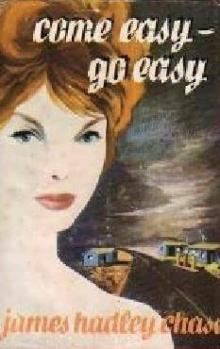 Come Easy, Go Easy
Come Easy, Go Easy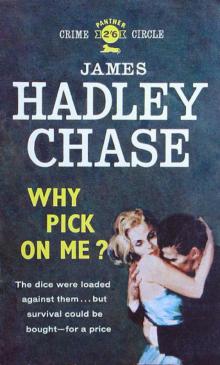 Why Pick On ME?
Why Pick On ME?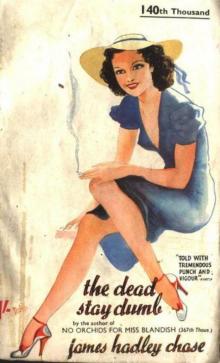 The Dead Stay Dumb
The Dead Stay Dumb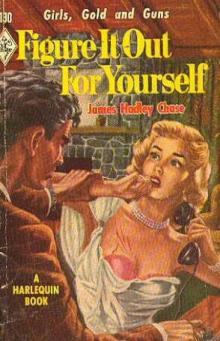 Figure it Out For Yourself
Figure it Out For Yourself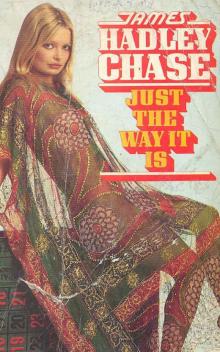 1944 - Just the Way It Is
1944 - Just the Way It Is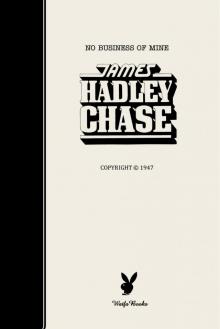 No Business Of Mine
No Business Of Mine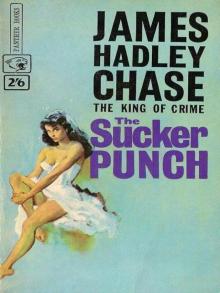 1953 - The Sucker Punch
1953 - The Sucker Punch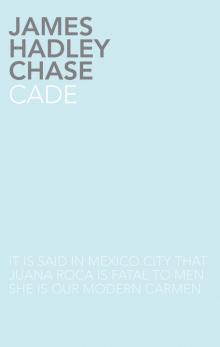 Cade
Cade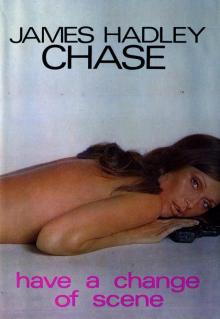 1973 - Have a Change of Scene
1973 - Have a Change of Scene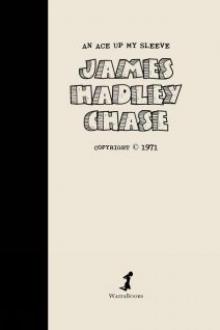 An Ace up my Sleeve
An Ace up my Sleeve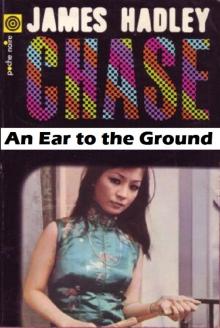 1968-An Ear to the Ground
1968-An Ear to the Ground 1950 - Figure it Out for Yourself
1950 - Figure it Out for Yourself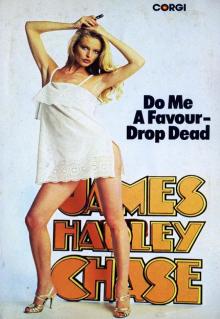 1976 - Do Me a Favour Drop Dead
1976 - Do Me a Favour Drop Dead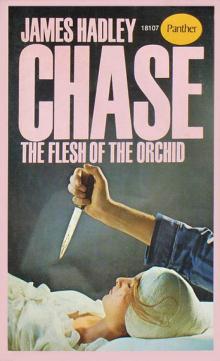 The Flesh of The Orchid
The Flesh of The Orchid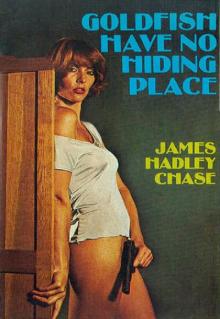 1974 - Goldfish Have No Hiding Place
1974 - Goldfish Have No Hiding Place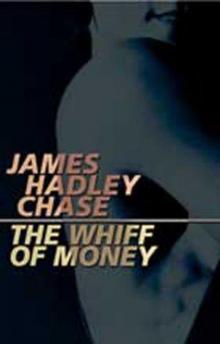 Whiff of Money
Whiff of Money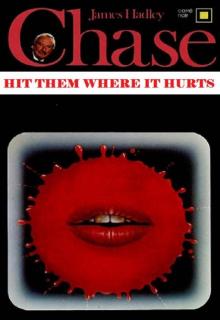 1984 - Hit Them Where it Hurts
1984 - Hit Them Where it Hurts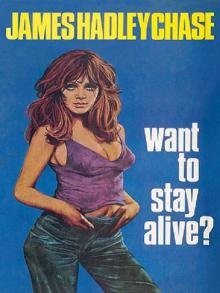 1971 - Want to Stay Alive
1971 - Want to Stay Alive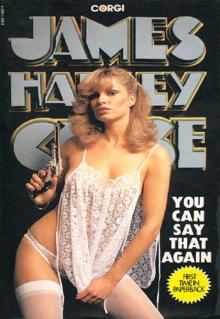 1980 - You Can Say That Again
1980 - You Can Say That Again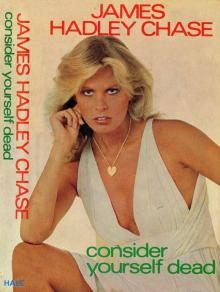 1978 - Consider Yourself Dead
1978 - Consider Yourself Dead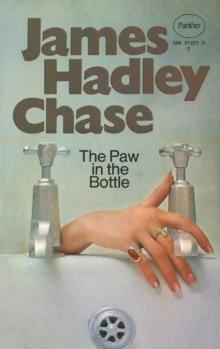 The Paw in The Bottle
The Paw in The Bottle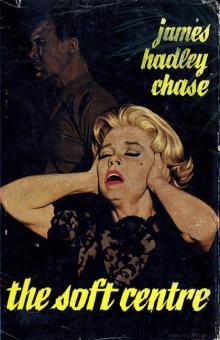 Soft Centre
Soft Centre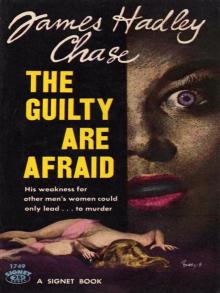 The Guilty Are Afraid
The Guilty Are Afraid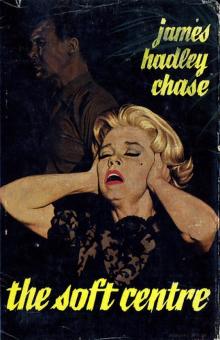 The Soft Centre
The Soft Centre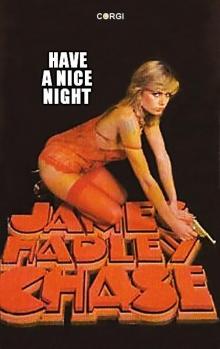 Have a Nice Night
Have a Nice Night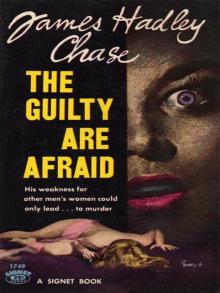 1957 - The Guilty Are Afraid
1957 - The Guilty Are Afraid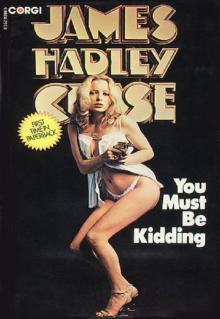 1979 - You Must Be Kidding
1979 - You Must Be Kidding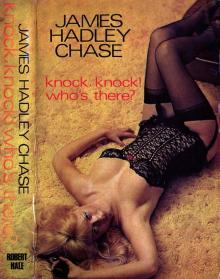 Knock, Knock! Who's There?
Knock, Knock! Who's There?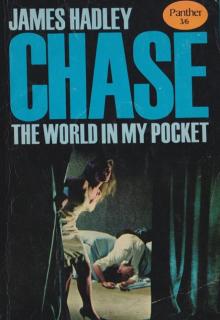 1958 - The World in My Pocket
1958 - The World in My Pocket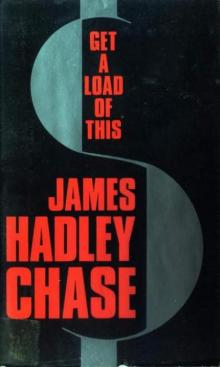 Get a Load of This
Get a Load of This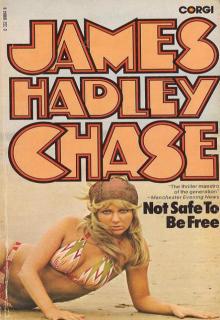 1958 - Not Safe to be Free
1958 - Not Safe to be Free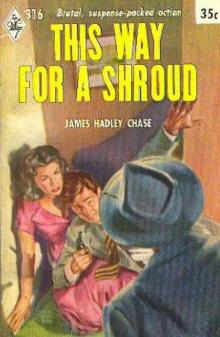 This Way for a Shroud
This Way for a Shroud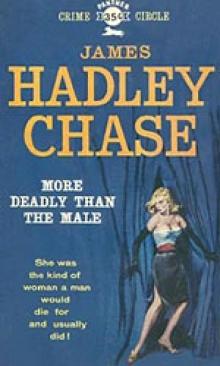 More Deadly Than the Male
More Deadly Than the Male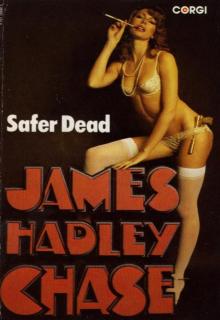 Safer Dead
Safer Dead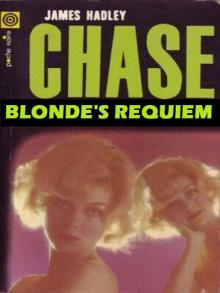 1945 - Blonde's Requiem
1945 - Blonde's Requiem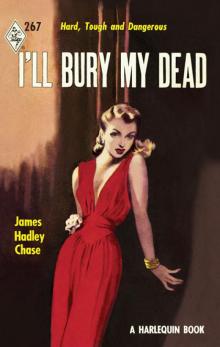 I'll Bury My Dead
I'll Bury My Dead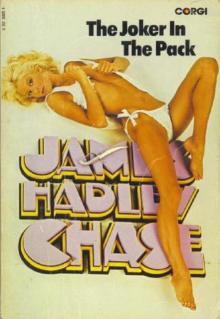 1975 - The Joker in the Pack
1975 - The Joker in the Pack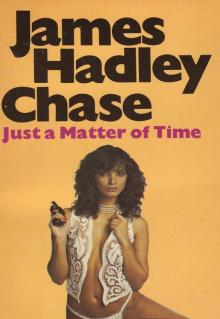 1972 - Just a Matter of Time
1972 - Just a Matter of Time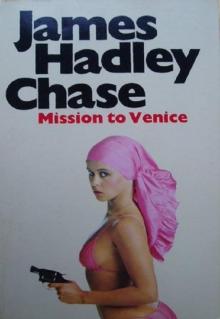 1954 - Mission to Venice
1954 - Mission to Venice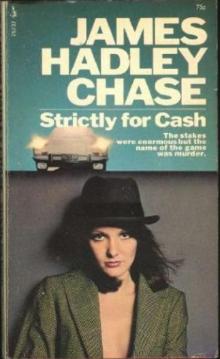 Strictly for Cash
Strictly for Cash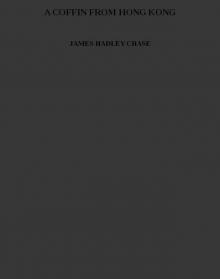 A COFFIN FROM HONG KONG
A COFFIN FROM HONG KONG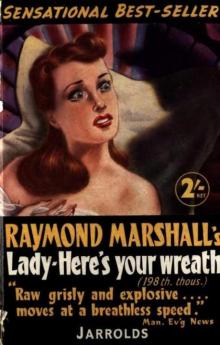 Lady—Here's Your Wreath
Lady—Here's Your Wreath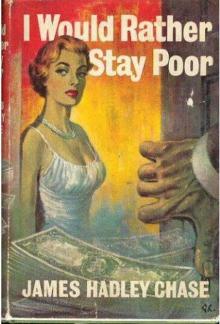 I Would Rather Stay Poor
I Would Rather Stay Poor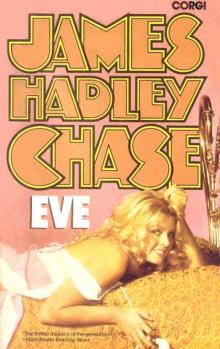 Eve
Eve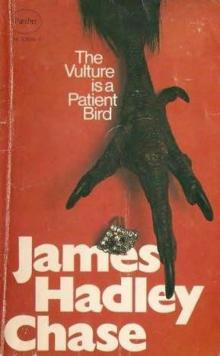 Vulture Is a Patient Bird
Vulture Is a Patient Bird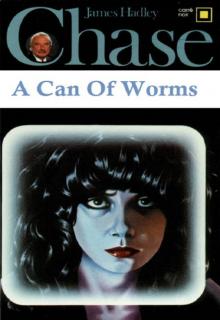 1979 - A Can of Worms
1979 - A Can of Worms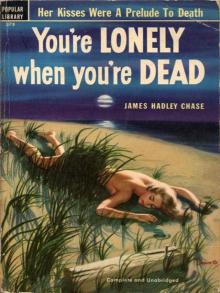 1949 - You're Lonely When You Dead
1949 - You're Lonely When You Dead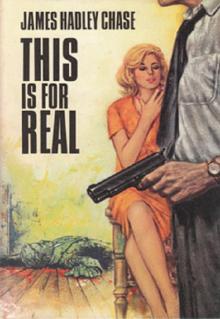 1965 - This is for Real
1965 - This is for Real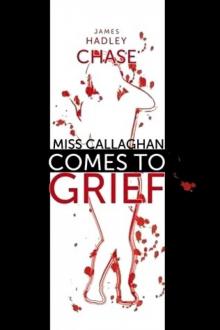 (1941) Miss Callaghan Comes To Grief
(1941) Miss Callaghan Comes To Grief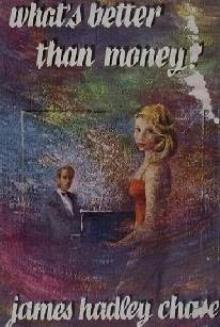 What`s Better Than Money
What`s Better Than Money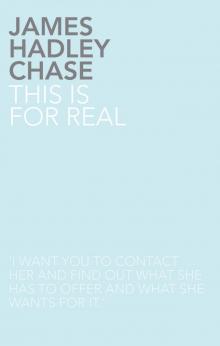 This is For Real
This is For Real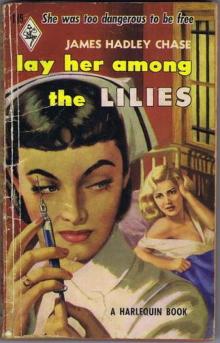 Lay Her Among the Lilies vm-2
Lay Her Among the Lilies vm-2 Knock Knock Whos There
Knock Knock Whos There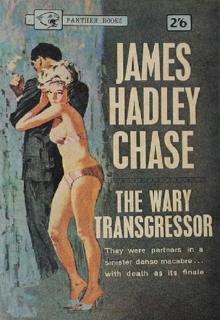 1952 - The Wary Transgressor
1952 - The Wary Transgressor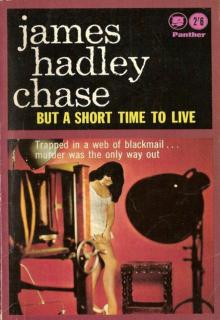 1951 - But a Short Time to Live
1951 - But a Short Time to Live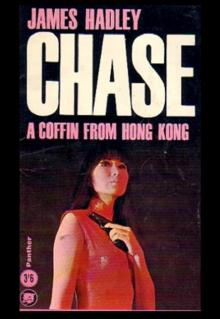 1962 - A Coffin From Hong Kong
1962 - A Coffin From Hong Kong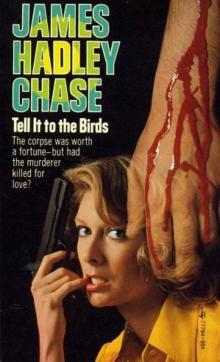 Tell It to the Birds
Tell It to the Birds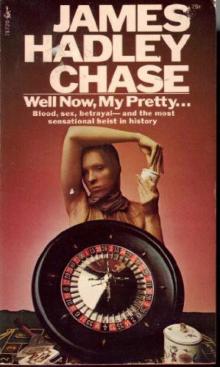 Well Now, My Pretty…
Well Now, My Pretty…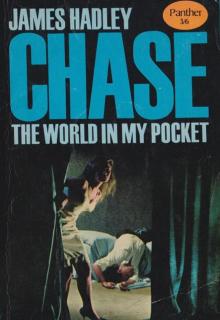 The World in My Pocket
The World in My Pocket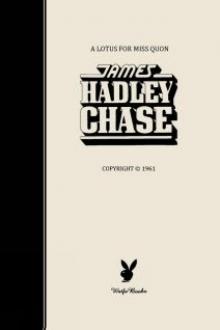 A Lotus for Miss Quon
A Lotus for Miss Quon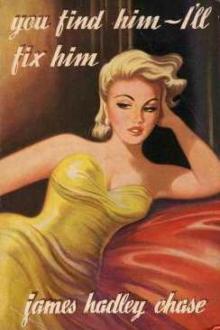 You Find Him, I'll Fix Him
You Find Him, I'll Fix Him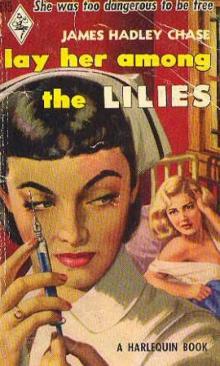 Lay Her Among The Lilies
Lay Her Among The Lilies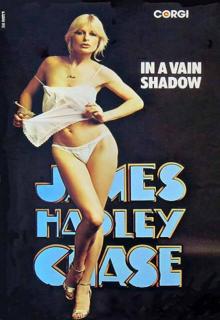 1951 - In a Vain Shadow
1951 - In a Vain Shadow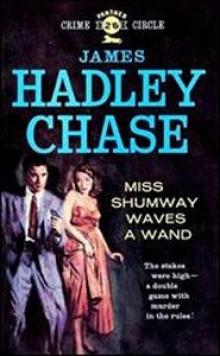 Miss Shumway Waves a Wand
Miss Shumway Waves a Wand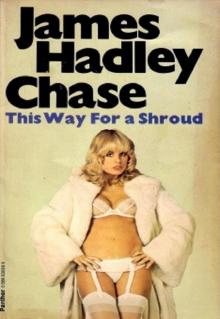 1953 - This Way for a Shroud
1953 - This Way for a Shroud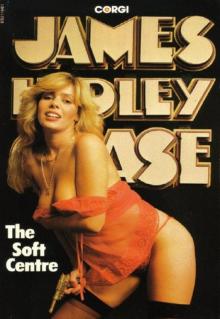 1964 - The Soft Centre
1964 - The Soft Centre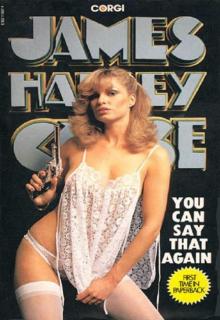 You Can Say That Again
You Can Say That Again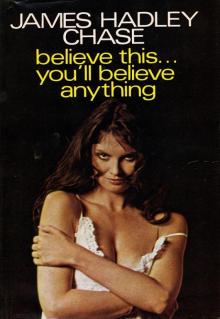 1975 - Believe This You'll Believe Anything
1975 - Believe This You'll Believe Anything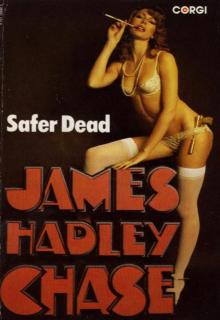 1954 - Safer Dead
1954 - Safer Dead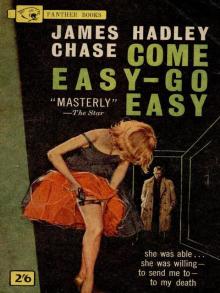 1960 - Come Easy, Go Easy
1960 - Come Easy, Go Easy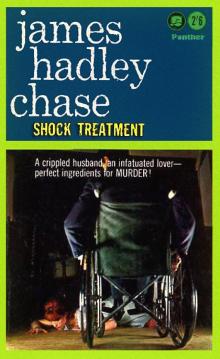 Shock Treatment
Shock Treatment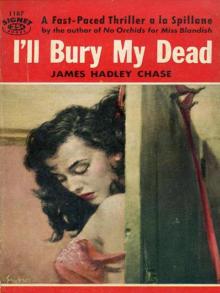 1953 - I'll Bury My Dead
1953 - I'll Bury My Dead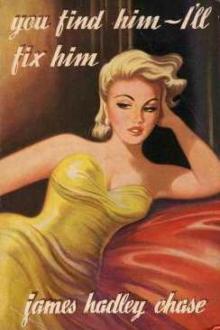 You Find Him – I'll Fix Him
You Find Him – I'll Fix Him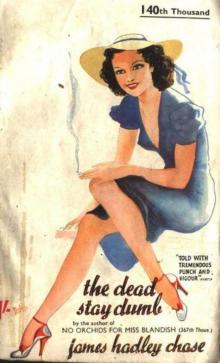 Dead Stay Dumb
Dead Stay Dumb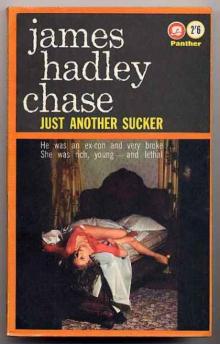 Just Another Sucker
Just Another Sucker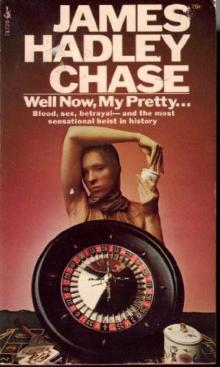 Well Now My Pretty
Well Now My Pretty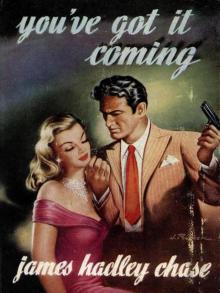 You've Got It Coming
You've Got It Coming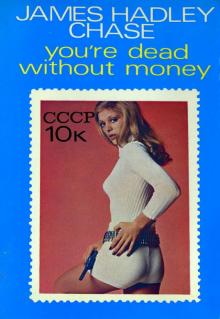 1972 - You're Dead Without Money
1972 - You're Dead Without Money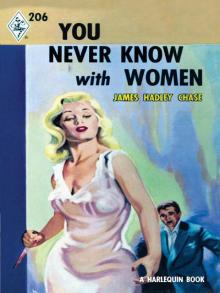 1955 - You Never Know With Women
1955 - You Never Know With Women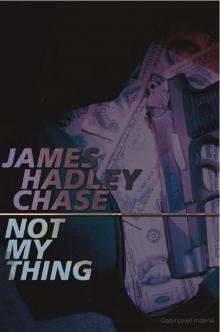 Not My Thing
Not My Thing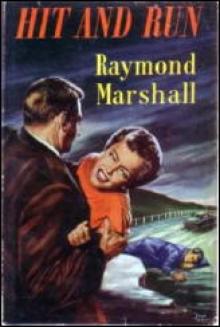 Hit and Run
Hit and Run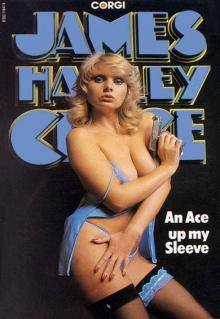 1971 - An Ace Up My Sleeve
1971 - An Ace Up My Sleeve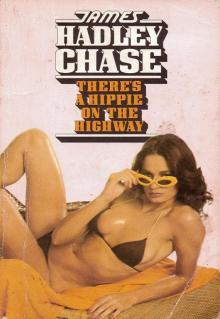 1970 - There's a Hippie on the Highway
1970 - There's a Hippie on the Highway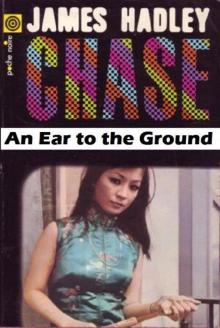 1968 - An Ear to the Ground
1968 - An Ear to the Ground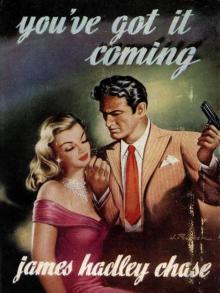 1955 - You've Got It Coming
1955 - You've Got It Coming 1963 - One Bright Summer Morning
1963 - One Bright Summer Morning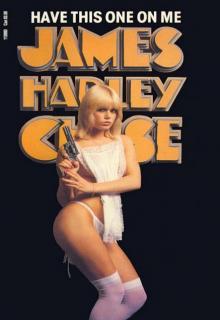 1967 - Have This One on Me
1967 - Have This One on Me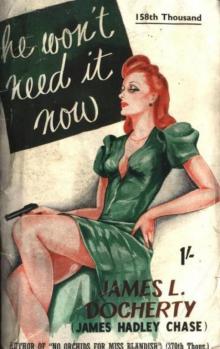 He Won't Need It Now
He Won't Need It Now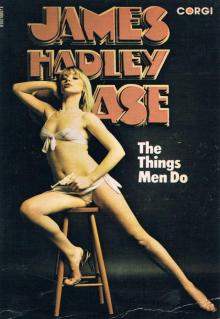 1953 - The Things Men Do
1953 - The Things Men Do Believed Violent
Believed Violent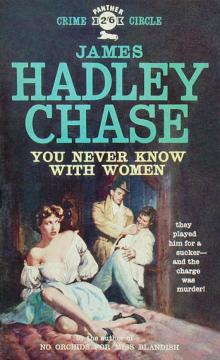 You Never Know With Women
You Never Know With Women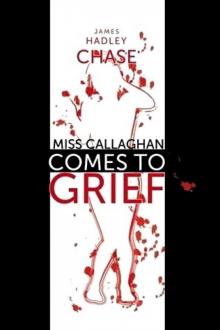 Miss Callaghan Comes to Grief
Miss Callaghan Comes to Grief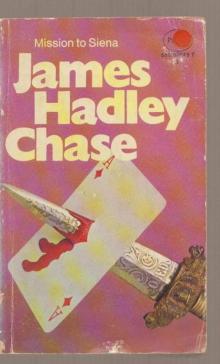 Mission to Siena
Mission to Siena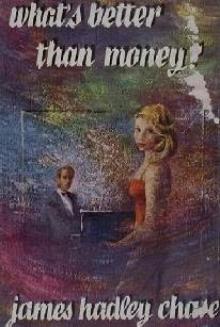 What's Better Than Money
What's Better Than Money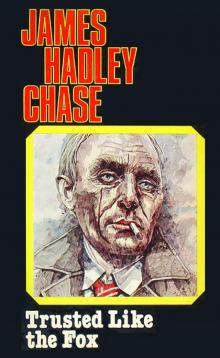 Trusted Like The Fox
Trusted Like The Fox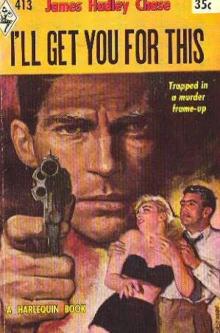 I'll Get You for This
I'll Get You for This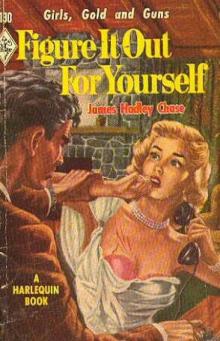 Figure It Out for Yourself vm-3
Figure It Out for Yourself vm-3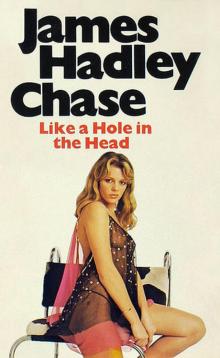 Like a Hole in the Head
Like a Hole in the Head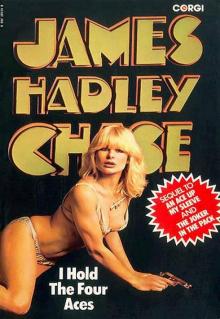 1977 - I Hold the Four Aces
1977 - I Hold the Four Aces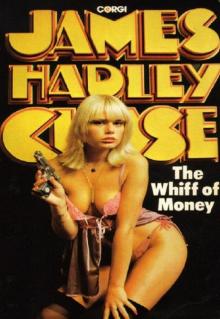 1969 - The Whiff of Money
1969 - The Whiff of Money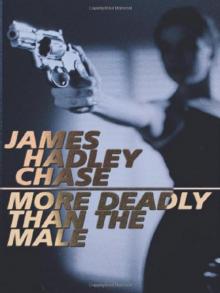 1946 - More Deadly than the Male
1946 - More Deadly than the Male 1956 - There's Always a Price Tag
1956 - There's Always a Price Tag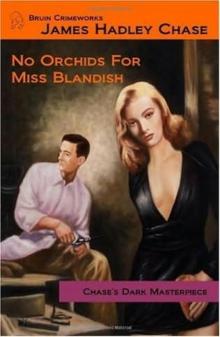 No Orchids for Miss Blandish
No Orchids for Miss Blandish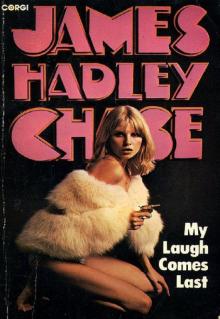 1977 - My Laugh Comes Last
1977 - My Laugh Comes Last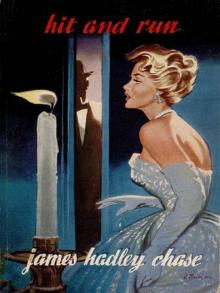 1958 - Hit and Run
1958 - Hit and Run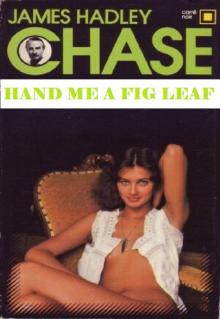 1981 - Hand Me a Fig Leaf
1981 - Hand Me a Fig Leaf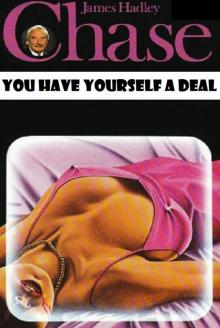 1966 - You Have Yourself a Deal
1966 - You Have Yourself a Deal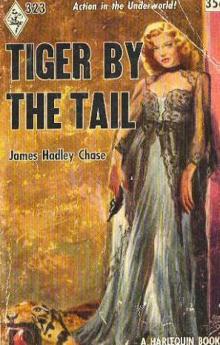 Tiger by the Tail
Tiger by the Tail